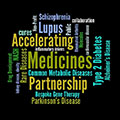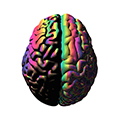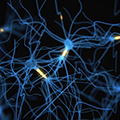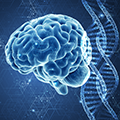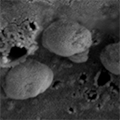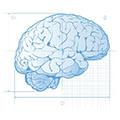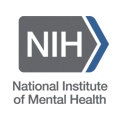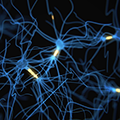Science News from 2021
- Understanding the Characteristics of Suicide in Young Children
-
Researchers supported by NIMH recently published a study describing the characteristics of suicide in young children and the factors that sometimes precede these tragic events, providing an avenue for future research and intervention.
- Persistent, Distressing Psychotic-like Experiences Associated with Impairment in Youth
-
In this NIMH-funded study, researchers examined the association between distressing and persistent psychotic-like experiences in youth and important risk factors for psychopathology.
- Dr. Tracy Waldeck Named Director of NIMH Division of Extramural Activities
-
The National Institute of Mental Health (NIMH) recently selected Tracy Waldeck, Ph.D., as director of the Institute’s Division of Extramural Activities (DEA).
- Researchers Find Disparities in Suicide Risk Among Lesbian, Gay, and Bisexual Adults
-
Suicide risk among lesbian, gay, and bisexual adults varies considerably depending on the intersection between sexual identity and other aspects of identity, such as gender, age, and race/ethnicity, according to a study led by NIMH researchers.
- NIH, FDA and 15 Private Organizations Join Forces to Increase Effective Gene Therapies for Rare Diseases
-
The newly launched Bespoke Gene Therapy Consortium (BGTC), part of the NIH Accelerating Medicines Partnership (AMP) program, aims to optimize and streamline the gene therapy development process to help fill the unmet medical needs of people with rare diseases.
- Brain Activity Patterns After Trauma May Predict Long-Term Mental Health
-
The way a person’s brain responds to stress following a traumatic event, such as a car accident, may help to predict their long-term mental health outcomes, according to NIMH-supported research.
- NIH BRAIN Initiative Unveils Detailed Atlas of the Mammalian Primary Motor Cortex
-
The NIH Brain Research Through Advancing Innovative Neurotechnologies® (BRAIN) Initiative Cell Census Network (BICCN) has unveiled an atlas of cell types and an anatomical neuronal wiring diagram for the mammalian primary motor cortex, derived from detailed studies of mice, monkeys, and humans.
- Genomic Data From More Than 41,000 People Shed New Light on Bipolar Disorder
-
In the largest genome-wide association study of bipolar disorder to date, researchers found about twice as many genetic locations associated with bipolar disorder as reported in previous studies. These and other findings help improve our understanding of the biological origins of bipolar disorder.
- A New Strength-Focused Framework to Prevent American Indian and Alaska Native Youth Suicide
-
Researchers have developed a promising new framework for suicide prevention in American Indian and Alaska Native (AI/AN) communities. The research framework expands on conventional risk reduction strategies by placing Indigenous culture, knowledge, beliefs, and community collaboration at the center of the approach.
- Researchers Use Exosome-Based Strategy to Block HIV in Mice
-
In this NIMH-funded study, researchers used exosomes to deliver novel protein into the cells of mice infected with HIV. The protein attached to HIV’s genetic material and prevented it from replicating, resulting in reduced levels of HIV in the bone marrow, spleen, and brain.
- Partner Violence and Elevated HIV Viral Load in South African Women
-
New analysis suggests an association between intimate partner violence and elevated viral loads among postpartum women in South Africa.
- Improved Emotion Regulation in Dialectical Behavior Therapy Reduces Suicide Risk in Youth
-
An analysis of clinical trial data shows that improvements in emotion regulation in youth at high risk for suicide who received dialectical behavior therapy (DBT) led to a reduction in self-harm behaviors.
- Anna E. Ordóñez Named Director of NIMH’s Office of Clinical Research
-
NIMH has selected Anna E. Ordóñez, M.D., M.A.S., as director of the Office of Clinical Research (OCR).
- Eating Disorder Behaviors Alter Reward Response in the Brain
-
A new NIMH-supported study found that eating disorder behaviors alter the brain’s reward response process and food intake control circuitry, which can reinforce the behaviors.
- Acting National Autism Coordinator Named
-
National Autism Coordinator Ann E. Wagner, Ph.D., will retire from federal service on June 30, 2021—Susan A. Daniels, Ph.D., will serve as Acting National Autism Coordinator beginning on July 1, 2021, and until a permanent successor is named.
- Mapping ‘Imbalance’ in Brain Anatomy Across the Lifespan
-
Researchers in the NIMH Intramural Research Program have developed a new way to measure the degree to which the proportions of an individual person’s brain differ from the proportions typically seen in the broader population. This technique yields new insights into brain development and offers tools for further study.
- Assessing Suicide Risk Among Childbearing Women in the U.S. Before and After Giving Birth
-
NIMH-supported researchers investigated suicide risk among women in the year before and year after giving birth.
- Investigating Unintentional Injury as a Risk Factor for Self-Harm
-
In a recent study, NIMH-supported researchers found that certain types of unintentional injury have stronger associations with self-harm than others in adolescents.
- Media Advisory: Prototype App for Mobile Devices Could Screen Children at Risk for Autism Spectrum Disorder
-
A mobile app was successful at distinguishing toddlers diagnosed with autism spectrum disorder (ASD) from typically developing toddlers based on their eye movements while watching videos, according to a study funded by the National Institutes of Health.
- NIMH Addresses Critical Need for Rapid-Acting Interventions for Severe Suicide Risk
-
NIMH is working to meet the urgent need for rapid-acting suicide prevention interventions by supporting research investigating the feasibility and safety of treatment protocols that have the potential to quickly reduce severe suicide risk in youth and adults.
- NIMH’s Dr. Andrea Beckel-Mitchener Named Deputy Director of NIH BRAIN Initiative
-
Andrea Beckel-Mitchener, Ph.D., has been named deputy director of the trans-NIH Brain Research through Advancing Innovative Neurotechnologies (BRAIN) Initiative.
- New Experiences Enhance Learning by Resetting Key Brain Circuit
-
A study of spatial learning in mice shows that exposure to new experiences dampens established representations in the brain’s hippocampus and prefrontal cortex, allowing the mice to learn new navigation strategies.
- Study Identifies Risk Factors for Elevated Anxiety in Young Adults During COVID-19 Pandemic
-
A new study has identified early risk factors that predicted heightened anxiety in young adults during the coronavirus pandemic.
- Gene Readouts Contribute To Distinctness of Mental Disorders
-
A new study conducted by researchers at NIMH suggests that differences in the expression of gene transcripts – readouts copied from DNA that help maintain and build our cells – may hold the key to understanding how mental disorders with shared genetic risk factors result in different patterns of onset, symptoms, course of illness, and treatment responses.
- Adaptive Screener May Help Identify Youth at Risk of Suicide
-
In a study supported by NIMH, researchers have developed a computerized adaptive screener that can help identify youth at risk for attempting suicide.
- NIH Initiative Expands Access to Resources for Early Psychosis Treatment and Research
-
The Early Psychosis Intervention Network (EPINET), an NIMH initiative aimed at determining how to best provide treatment for individuals experiencing symptoms of early psychosis, is increasing access to resources for researchers, providers, and families through a growing network of research hubs and a new website.




